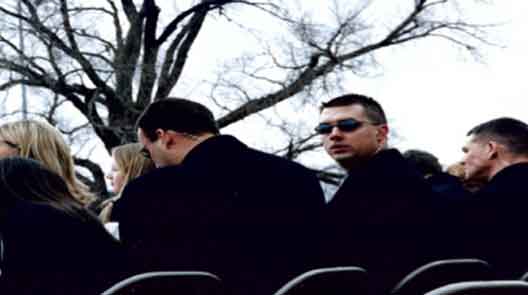Happy New Year! 2015 is upon us and this time of the year generally brings resolutions and commitments. I hope one of those commitments high on your list will be training! We will be offering continuing education training for all of our Officers again this year. The curriculum will include a 4-hour firearms block and a 4-hour block on Active Shooter response. I am putting together the 2015 training schedule and will have it out in February to begin training in March. Be looking for the calendar. I want to talk about the term, “Protective Detail.”
For most of us, our duty assignments include providing security and protection for a facility as well the occupants. Generally that includes many people so the thought doesn’t really seem like it’s a “Protective Detail.” But let’s explore the term and I think we can safely say we have the same duties and responsibilities as we would on a protective detail of a select few, or even a single person. The purpose and philosophy of executive protection is obviously to provide the maximum amount of security coverage for the principal. But I believe another responsibility in our position is confidentiality.
Our professionalism and training helps gain the confidence of our clients in security and protection, but our discretion and professional decorum is how we build trust of the client (protectee). We earn that trust by remaining apolitical and providing a strict level of confidentiality. When we are providing a service to our clients, we may be exposed to privileged or classified information. Our clients, (protectee) have to be able to trust us.
Another commonality of duties between a site security position and a protective detail is to never consider our tasks to be standard, routine or redundant . We must always be prepared for unexpected issues to arrive and we have to be able to adapt to the situation. Seldom do plans go completely as scheduled. If we allow ourselves to get in a routine, we will not be prepared to handle situations that require us to be the calm, cool and collected professional. Expect the unexpected and we will be able to adapt quickly when things do not run smoothly.
Pre-event planning is a critical, yet common element of both tasks. Getting to know the day to day people and their routines can be very important information to help you do your job. As you patrol, or make rounds, don’t just look for everything to be right; look for things that are wrong. Know your area and who and what are supposed to be there and make sure you are seen. Talk with your partners to make sure everyone is aware of things out of the ordinary and work on solutions. Be proactive on your patrolling. Situational awareness is key. Change up your patrol habits and don’t be predictable. If you take care of small things, they seldom have a chance to become big things. Face to face contacts and getting to know the protectee (clients) helps us be able to do our job. It is important to know who belongs on site, but it is critical to know who doesn’t belong on site. This is where command presence comes full circle.
Be that officer that is connected and observant and the bad guys will recognize that they need to go somewhere else. Lastly, I will tell you that in our line of work, we should consider ourselves to be on a protective detail just about anytime unless we are at home in the comfort of our living room. When we are at work and on duty, we are on a protective detail; (our clients).
When we are out in public with our families, we are on the most important protective detail of our lives! I look forward to training with you all in 2015.

